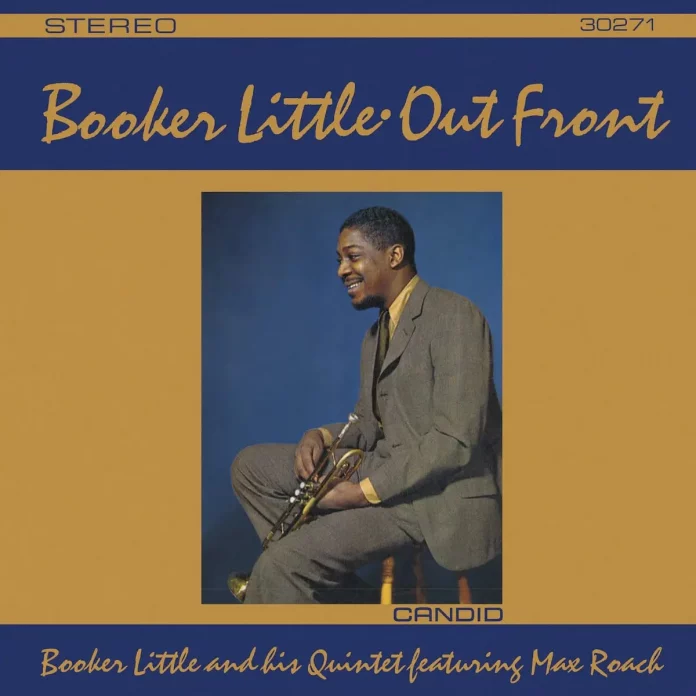This was Booker’s first and sadly, as it turned out, only LP as a leader. He died of a rare blood disease, aged 23, shortly after completing this record. It was for the also sadly short-lived Candid label which functioned as a jazz subsidiary of Cadence Records. Candid lasted barely two years, but the small catalogue of records it produced were first class. This was because they let jazz critic and historian Nat Hentoff direct the programme.
Hentoff gave Little full freedom to write and to organise and pick the personnel for his session. Little had just finished a season with Max Roach’s quintet, playing advanced bop of the day, but he was obviously leaning towards the new thing when he went into the NYC studio to make this disc.
This was, though, progressive jazz with thought, structure and, as far as the leader was concerned, conventional tonality. His original compositions are intriguing, using frequent tempo changes, and the charts are serviceable and mostly melodic. Moods In Free Time may be the most far out with its movements from 3/4 to 4/4 then 5/4 and a slow 6/4. Booker’s trumpet though shines out brightly, his tone open as he improvises on his own line in differing meters.
We Speak was written by Little as an exercise for the musicians to say their piece individually and express themselves. Booker’s trumpet surges ahead with a hint of tension, then there’s a free section and resolution. Dolphy’s alto is jagged but emotive and there is good support from the others, particularly Priester, who mainly provides background harmony. Art Davis’s big bass sound walks steadily beside Max Roach, who fashions a hybrid solo utilising both conventional drums and tympani. Ron Carter’s fluid lines are heard on four tracks and Davis on three.
The seven tracks on this CD are all interesting lines, all by Booker, and all give the impression that they are experimental but looking to the future of jazz. It was an auspicious debut album, and he did record live as co-leader with Eric Dolphy at the Five Spot Café, but what a pity that he didn’t live along enough to develop his special talent.
Discography
We Speak; Strength And Sanity; Quiet Please; Moods In Free Time; Man Of Words; Hazy Blues; Anew Day (43.59)
Little (t); Julian Priester (tb); Eric Dolphy (as, bcl, f); Don Friedman (p); Ron Carter or Art Davis (b); Max Roach (d, tym). NYC, 1961.
Candid 30271 (LP) & CCD 30272 (CD)
Booker Little: Out Front (vinyl version) Candid 30271
A repressing of this album took nine months but arrived in autumn 2023. In my January review above of the CD, I mentioned Booker’s move towards free jazz of the day and his structured, well-written selections. The LP, identical in all respects to the original Candid release in 1961, has been remastered using the first-issue master tapes by Bernie Grundman and he has done a good job. The recording was good to start with and Grundman has captured the music almost exactly as it must have sounded in the studio back in 1961. Listen to Booker’s tart, open trumpet lines, clearly defined here. Eric Dolphy’s jagged, searing alto never sounded more fiercely controversial and contemporary than on these tracks. The recording catches the lean, driving sound of Art Davis’s bass and Ron Carter’s big, full sound. The two shared bass duties on this album. The remastered vinyl sound also picks up with great clarity Max Roach’s solos where he alternates jazz drums with tympani on three tracks. It’s those little extra definitions of the overall sound that modern vinyl like this captures so well. – Derek Ansell, October 2023















